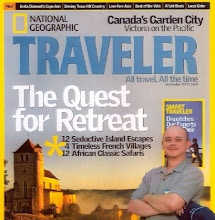
CHARLOTTESVILLE, Va. - The
Southern Environmental Law Center (SELC), the largest environmental advocacy organization dedicated to protecting the Southeast, today announced its fourth annual list of the top 10 places in the South that face immediate, potentially irreparable threats in 2012.
For more detailed descriptions of each endangered area, SELC's protection efforts, photographs and video, visit www.southernenvironment.org/topten. Interviews available upon request. Many of the areas on SELC's Top 10 list are endangered by pressure to undercut environmental protections and to lower the hurdles for potentially destructive projects, whether it's fracking in the North Carolina Piedmont,
uranium mining in Virginia, or deepwater drilling in the Gulf. "The South's special places and natural riches are threatened by a wave of calculated attacks on the bedrock laws that protect our environment and health," said Marie Hawthorne, SELC's Director of Development. "Under the guise of promoting economic growth, anti-environmental forces are working in Congress, in state legislatures, and in government agencies to gut our most essential safeguards. "The truth is, environmental protection had nothing to do with the financial crisis or today's weak economy," Hawthorne added. "Doing away with effective laws and enforcement will accomplish nothing except sacrifice the natural treasures like those on our Top 10 list and other resources that make the South such a great place live, work, and raise our families. We owe it to ourselves -- and to future generations -- to make sure this doesn't happen."
Top 10 Endangered Places in the Southeast for 2012 The following endangered areas were chosen from among hundreds of special places that the SELC is defending through its law and policy work in the six states ofVirginia, Tennessee, North Carolina, South Carolina, Georgia and Alabama. Alabama's coast: Following the tragic BP spill, the government has returned to business as usual and is authorizing risky deepwater drilling projects under the same assumptions that failed in the
Deepwater Horizon disaster. This approach is irresponsible, illegal, and poses an ongoing threat to Alabama's beaches, marshes, wildlife, and coastal communities.
Dawson Forest, Georgia: A costly, unnecessary proposed reservoir would siphon 100 million gallons per day from the Etowah River to fuel metro Atlanta's unchecked sprawl, threatening prime habitat for endangered aquatic life, water supplies of downstream communities, and a popular recreation area.
Catawba-Wateree Basin, North Carolina & South Carolina: The health of the Catawba-Wateree River, which provides drinking water for hundreds of thousands of residents of central North Carolina and South Carolina, faces an array of threats, including pollution from toxin-laden coal ash ponds, hydroelectric dams that will continue to disrupt stream flows and fish migration, water withdrawals that rob water from downstream farms and communities, and unnecessary reservoir projects that promote inefficient development and water use.
North Carolina Piedmont: The gas drilling industry and its allies in the North Carolina General Assembly are pushing hard to pass legislation that would expedite hydraulic fracturing (a.k.a. 'fracking') to extract natural gas, despite mounting evidence that the drilling technique, in the absence of appropriate regulatory controls, can lead to the contamination of groundwater and surface water. Potential fracking sites in North Carolina's Piedmont are underneath or upstream from water supplies for 2.4 million people.
Savannah River, South Carolina & Georgia: The U.S. Army Corps of Engineers' plan to deepen 38 miles of the Savannah River shipping channel would increase saltwater intrusion in the river and jeopardize freshwater marshlands in the Savannah National Wildlife Refuge, drinking water supplies for Savannah and other communities, and habitat for endangered aquatic species.
Chilhowee Mountain, Tennessee: The outdated plan for completing Corridor K between Chattanooga and Asheville includes a proposal to cut a new four-lane highway through the Cherokee National Forest near the Ocoee Gorge, even though improvements to the existing two-lane highway on its current footprint would be less damaging, less costly, and no less effective.
Chesapeake Bay, Virginia: For decades the Bay has suffered from pollution from all sides -- air, land, and water. Unfortunately, industry interests and their political allies are doing all they can to impede a comprehensive rescue plan.
Mountains of Tennessee & Virginia: Mountaintop removal and other destructive coal mining practices have already destroyed at least 500 mountains and damaged 1,700 miles of streams in Virginia, Tennessee and other central Southern Appalachian states, and pressure continues to mount.
Charlottesville, Virginia & Surrounding Countryside: Local and state decision-makers are attempting to revive a wasteful, destructive, and ineffective proposed bypass that would leave a permanent scar on one of the South's most special communities.
Southside Virginia: An intense push to mine uranium in southern Virginia risks polluting drinking water supplies with radioactive and toxin-laden wastewater. Lifting the state's ban on
uranium mining could open up Virginia's Piedmont countryside to more large-scale mining projects.
About the Southern Environmental Law Center (SELC) SELC is the largest environmental organization focused exclusively on the South. For 25 years, the Southern Environmental Law Center has worked successfully in all three branches of government to create, implement, and enforce
environmental law and policy. Their major programs cover clean energy, transportation and land use, southern forests, the coast and wetlands, and preservation of rural countryside and community character. SELC has 46 attorneys (out of a total staff of 90) and offices inCharlottesville (SELC's headquarters) and Richmond, Virginia; Chapel Hill and Asheville, North Carolina; Charleston, South Carolina; Atlanta, Georgia; Birmingham, Alabama; and Washington, D.C.
www.SouthernEnvironment.org.

No comments:
Post a Comment